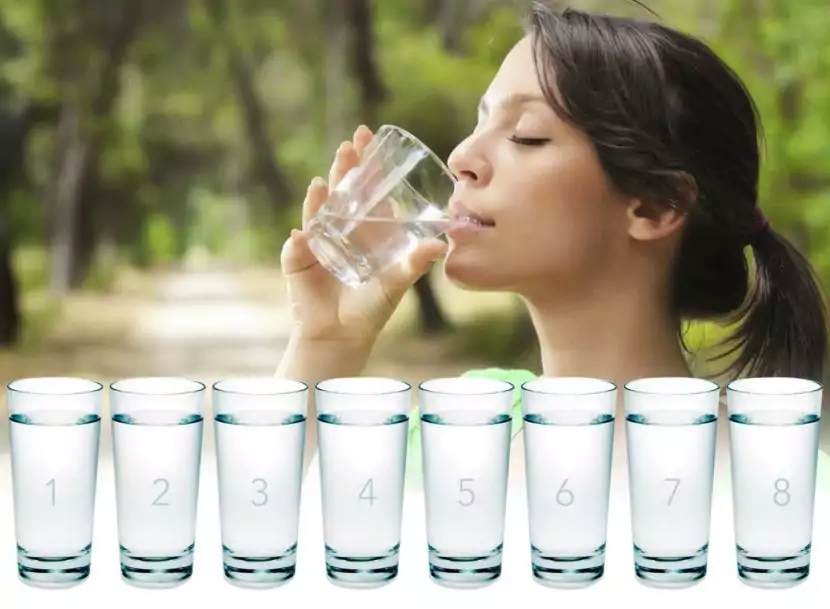Fruits and vegetables are known to have about 90% water, and the majority of other vegetarian foods, such as grains and legumes, are more than 80% water when cooked.
Soups, broths, and teas consist mainly of all water. Too much water from any foods can cause sensations of coldness, and deteriorate the digestion and the energy of the entire body. This view is sustained by Chinese curative traditions, which state that a surplus of water consumption reduces the digestive role of the spleen-pancreas and hinders the kidney-adrenals’ capacity to assure the body with warmth and energy. This applies particularly to cold water or foods. When too much of these products are consumed, people tends to be attracted to animal products in an effort for balance, rather than to fruits and vegetables.
Insufficient water intake causes toxicity of the body as well as constipation, tension, tightness, overeating, dryness, and kidney damage. Heat indicators such as inflammations, fevers, and feeling too hot can also occur. Those persons that are on a rich meat diet usually have deficient body fluids and this phenomenon is also common among vegetarians who eat large amounts of salty food, no soup or tea, and food such as grains cooked in minimal water. The amount of water in the diet considerably influences long-term health. The health of human body and its internal functioning also determine how efficiently water is used and dispensed.
